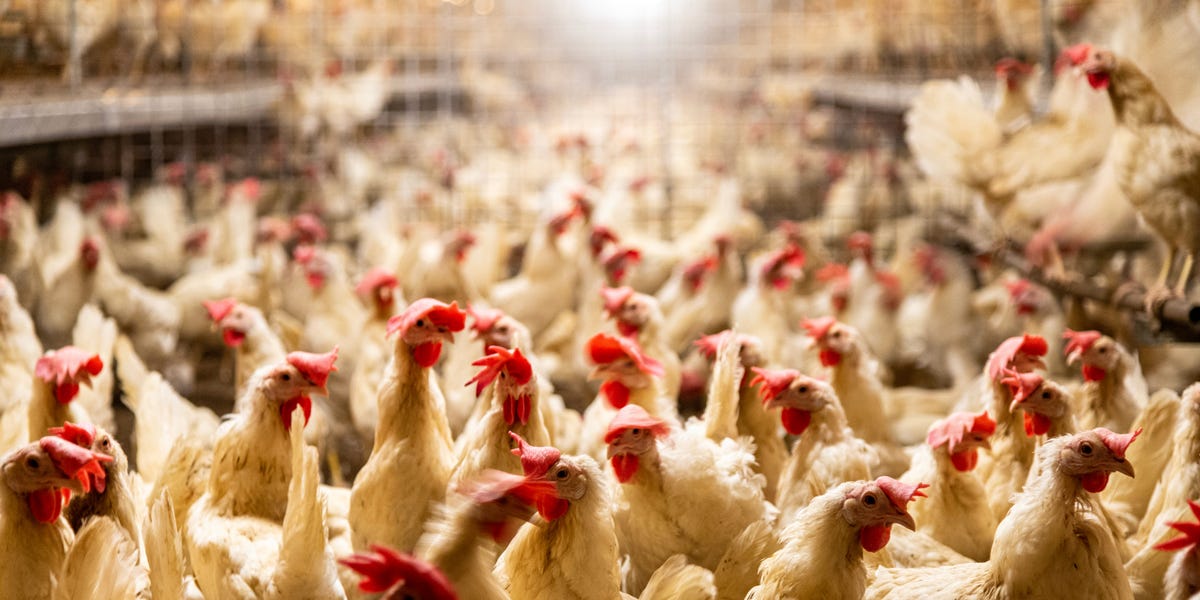Interesting that they think there’s a single universal voice amongst hens. I’ve got a small flock of a dozen birds, and they each have distinct voices and calls. You can always tell who just finished laying by which egg song you’re hearing, until the others join in and it’s a cacophony.
We’ve got one anericauna who likes to “scream” for her egg song. Awful sound, very close to a hen screaming because a bobcat got her.
The chicken whisperer.
I don’t think that they think that. All humans have different voices, yet it’s pretty easy to tell what mood someone is in, even if you don’t know the languages. Why would you assume that chickens express these so differently that it can’t be interpreted automatically, when the same is possible for us with much higher ranges of possible expressions?
It wouldn’t have to be a universal voice, just something consistent in the noise. Neat thing with lots of AI training is we don’t have to necessarily even have a theory of what the AI is picking out. It just has to be in the training data and our hints during training have to be appropriate.
We need this for babies :)
deleted by creator
I’d say we need it for dogs, but we all know what they’d say. “feed me! Pet me! Hi, my name’s Roger! Feed me! Pet me!”
Many many years ago I had a small contract with an animal research group making some of the gear for doing this with dogs and cats. My understanding is the project didn’t get great results. They basically could make predictions that were slightly worse than a dog trainer could.
Was a fun project for me.
Honestly, any decent dog owner can read the signs that their dog makes in terms of basic communication. We co-evolved after all. I don’t know how much a dog translator would be especially useful.
This is off memory but I think the motivations were
- pure science
- monitoring the state of dogs for all the hours a person can’t be there to watch them.
“SQUIRL!!!”
If they’re not getting consent from those chickens to use their clucks as training data they’re engaging in animal abuse. Stealing their voices, how cruel.
🧂🧂🧂
You know you’re being disingenuous with this.
They’re violating the chickens intellectual property by training the model on the chickens sounds without legally binding consent from the chickens to train on their data.
Wouldn’t be surprised if the chickens banded together and sued for copyright infringement.
I don’t know, a chicken at the state fair beat me at tic-tac-toe when I was 10: they must be pretty smart.
This is literally the argument Vegans use. Also practically the argument writers are using.
This is the best summary I could come up with:
The AI system is based on a technique the researchers called “Deep Emotional Analysis Learning,” which can adapt to changing vocal patterns.
The study found that the system was capable of translating “various emotional states in chickens, including hunger, fear, anger, contentment, excitement, and distress.”
The researchers tested the system on 80 chickens for the study and collaborated with a team of animal psychologists and veterinarians.
The system was able to achieve surprisingly high accuracy in identifying the birds’ emotional states, the study found.
“The high average probabilities of detection for each emotion suggest that our model has learned to capture meaningful patterns and features from the chicken sounds,” it said.
The researchers acknowledged potential limitations, including variations in breeds and the complexity of some communications, such as body language.
The original article contains 298 words, the summary contains 129 words. Saved 57%. I’m a bot and I’m open source!
After spending the day reading about NLP, this is an interesting article to pop up on my feed to say the least…
Neuro-Linguistic Poultry?
A poultry task!
Natural language processing. Basically what all the “AI” stuff is.
Nah man Neuro-Linguistic Poultry is a specific implementation
Adrian (the PI) is such an unusual, mad genius kind of guy. Peer reviewed or not, it would be cool if he and others managed to help us understand animals better.
Would do they know their feelings in the first place? You need to have matched those feelings to sounds in the first place to train the model.
It’s not hard to scare a chicken
Sure, but this isn’t claiming that they’ve built a model that only differentiates between scared and not scared.
Do I really need to say it’s not hard to tell if a chicken is hungry?
deleted by creator
Anyone that’s kept chickens can tell you what the different sounds mean – they’re not complicated creatures.












